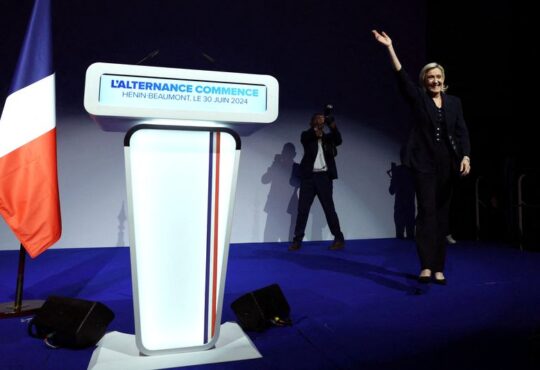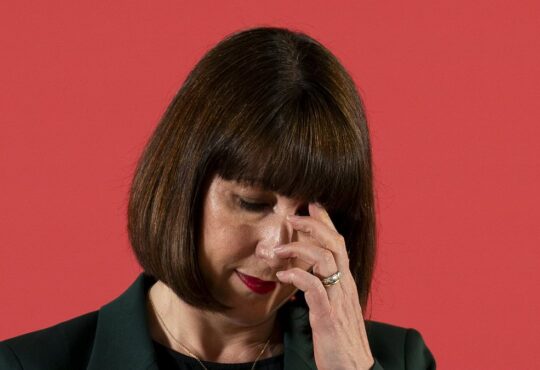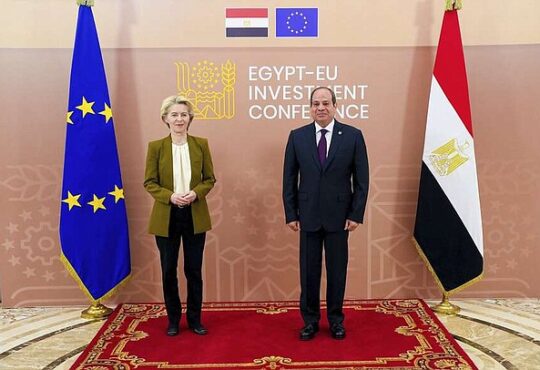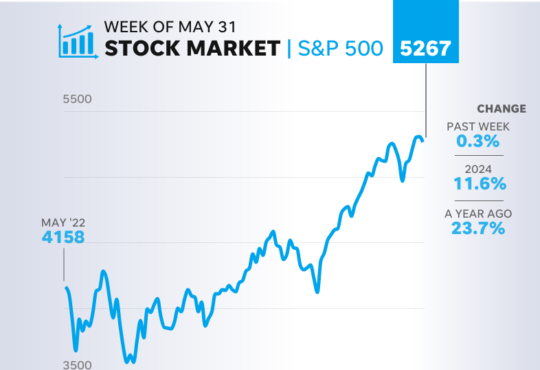[1/4]Members of the European Council speak as they attend the European Union leaders summit, in Brussels, Belgium October 26, 2023. REUTERS/Yves Herman Acquire Licensing Rights
BRUSSELS, Oct 26 (Reuters) – From supporting Ukraine to boosting military might and managing migration, European Union leaders channelled diverging priorities on Thursday as they started debating where to put more money from their shared budget in the next four years.
The EU is due to decide in December on a revision of its 2021-27 budget worth 1.1 trillion euros ($1.2 trln), which is already strained by emergency spending during the COVID pandemic and since Russia invaded Ukraine in 2022.
The bloc’s executive proposed that member states chip in more to the shared coffers to provide 50 billion euros to Ukraine and spend another 15 billion on migration. Another proposal would allocate 20 billion in military aid for Ukraine.
Budgetary decisions require unanimity and divisions were on display on Thursday as the bloc’s 27 national leaders arrived for a summit in Brussels.
“What is on the table today is unacceptable for us,” said Belgian Prime Minister Alexander de Croo.
He backed the bloc’s continued support for Ukraine but called for a different approach to funding new spending.
“We ask the Commission and other institutions to look at their own funds and look at the funds that are not being fully used … instead of asking the member states for bigger contributions.”
On the bloc’s eastern flank, Estonian Prime Minister Kaja Kallas said that – beyond supporting Ukraine – joint expenditure should grow for improving EU defence capabilities. Lithuania said 50 billion euros for Ukraine was not enough.
Slovakia’s Robert Fico – arriving to the summit a day after being appointed prime minister for the fourth time – said he would not agree to more military aid for Ukraine.
“We will only concentrate on humanitarian aid,” he wrote on social media from Brussels.
In the south, Greece pleaded for more money for migration as the bloc is pushing to tighten its external borders and reduce unauthorised arrivals from the Middle East and Africa.
“Greece is a country of first reception and needs more European support to deal with the immigration problem,” said the Greek premier, Kyriakos Mitsotakis.
‘NOT MATCHING YET’
That was quickly rejected by Hungary’s Viktor Orban, one of the staunchest anti-immigration voices in the EU, who said Budapest was against giving money to “migration, integration policy, and to the Ukrainians”.
Orban said Hungary would not back more aid for Ukraine unless it saw “a very well-justified proposal”.
“The one in front of us … that’s not going to work. So, for the time being, we will reject that as well and we will see where we get in December.”
Orban’s comments come as his government is trying to unlock billions in aid envisaged for Hungary in the EU budget but blocked by the European Commission over rule of law concerns.
Ireland’s Leo Varadkar added investments in EU competitiveness to the long list of conflicting priorities.
“Where that money is found of course will be a matter of significant debate,” he said.
Diplomats said countries plagued by natural disasters last summer were seeking help on that, while Austria led calls to spend more in Western Balkans.
Olaf Scholz, the leader of the EU’s paymaster Germany, concluded the negotiations were only starting in earnest: “We are still at the beginning, the positions … are not matching yet.”
Reporting by Gabriela Baczynska, Marine Strauss, Krisztina Than, Tassilo Hummel, Rene Maltezou, Jan Strupczewski, Jason Hovet; Writing by Gabriela Baczynska; Editing by Tomasz Janowski and Giles Elgood
Our Standards: The Thomson Reuters Trust Principles.





